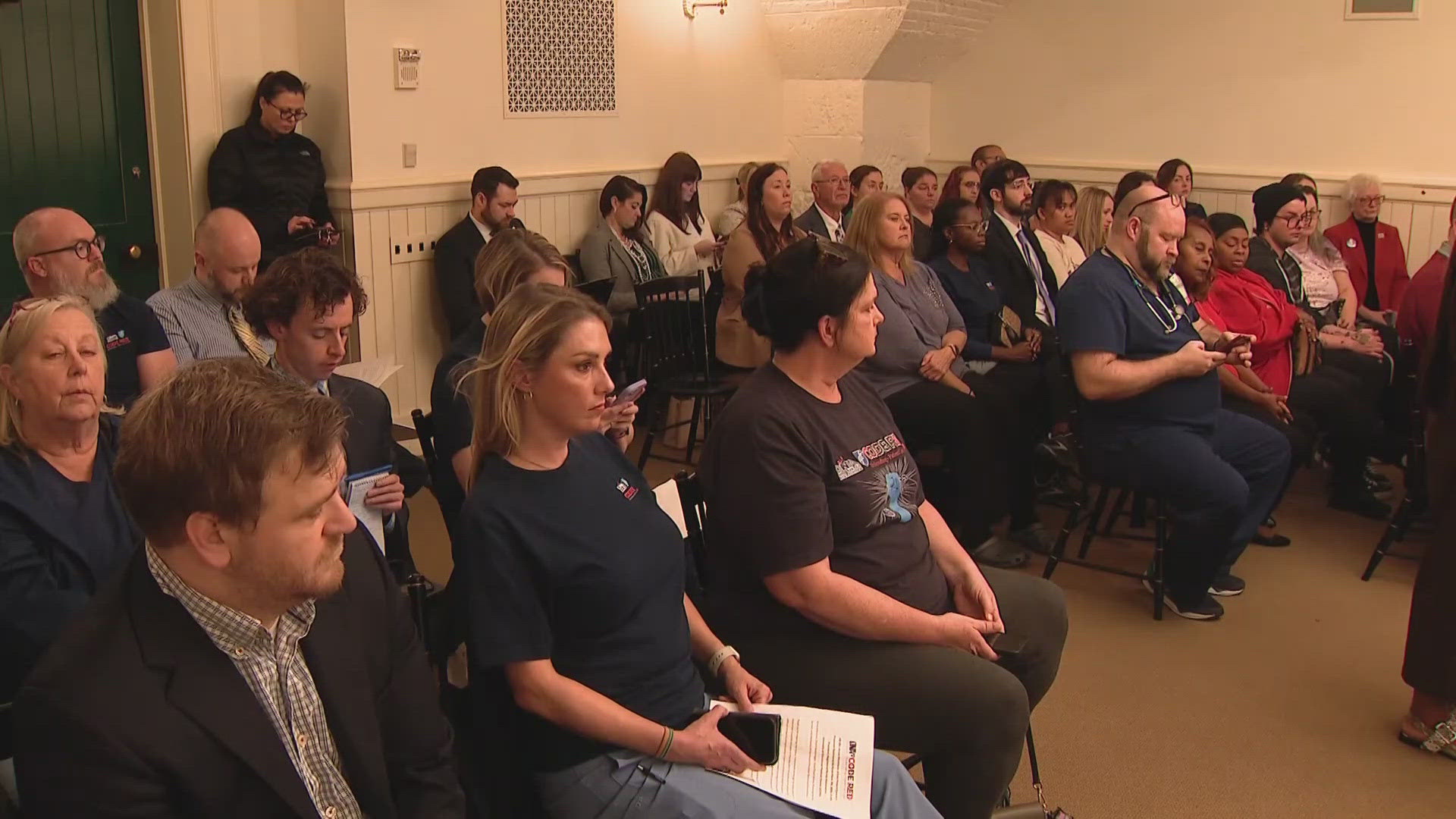LEBANON, Ohio — A Warren County judge denied a motion Monday to toss out a lawsuit over a local ordinance that allows residents to carry concealed firearms into city council meetings.
Common Pleas Judge Timothy Tepe ruled against the city of Lebanon, declining its request that he dismiss a lawsuit that three residents filed earlier this year.
On March 10, 2020, just one day after Ohio’s first known COVID-19 cases were detected, the Lebanon City Council passed an ordinance allowing licensed residents to carry concealed weapons into the city building. However, they can only do so when the municipal court (also located in the city building) is not in operation.
Tepe’s ruling marks an early win for the plaintiffs but is not a final ruling on the merits.
Ohio law prohibits even licensed gun owners from carrying weapons into a courthouse or “another building or structure in which a courtroom is located.” The state concealed carry law also mentions that a valid permit does not authorize a licensee to carry a concealed handgun into “a building or structure in which a courtroom is located.”
The “governing body with authority over the building” can adopt a law or policy allowing for concealed carry, under an amendment to the law passed in 2016 state legislation. However, plaintiffs argue this provision does not apply to a building used as a courthouse.
Tepe’s ruling states there is a “genuine dispute as to the legal validity” of the Lebanon ordinance.
“You would agree that it’s going to come down to … when is a courtroom a courtroom? When is it not a courtroom?” Tepe asked an attorney for Lebanon, who agreed, according to a transcript of a hearing on the city’s motion.
The legal question doesn’t address the broader issue of the wisdom of allowing weapons into public meetings. Town councils run a gamut. Sometimes they focus on zoning issues; sometimes, as Lebanon did in May of this year, they preemptively ban abortion clinics from the city.
The citizens argued the concealed carry policy creates an environment where they can’t feel safe at a government meeting, which limits their right to participate.
“The potential presence of concealed handguns introduces a risk of physical harm and armed intimidation, particularly in a setting where vigorous discussion on hot button issues can cause tempers to flare,” they wrote in court documents. “That risk, in turn, chills Plaintiffs’ engagement in the democratic process.”
Curt Hartman, an attorney representing Lebanon, argued that the courtroom effectively becomes the city council chamber when the former is out of session. Therefore, the ordinance only allows residents to carry concealed weapons inside when the building acts as a council chamber and not a courtroom.
Tepe did not rule on the courtroom/council issue. He did, however, allow the residents to sue as taxpayers under an Ohio law that allows taxpayers to sue their governments for different alleged failures.
He rejected an argument from Hartman that the lawsuit isn’t in the public interest so much as the citizens’ effort to “remedy the personal fears, stresses or anxieties plaintiffs claim to experience knowing that properly licensed individuals may be carrying concealed weapons at meetings of city council.”
Keary McCarthy, executive director of the Ohio Mayors Alliance, declined an interview request to discuss the case, but said in a statement that gun violence is a serious challenge for local leaders across Ohio.
“While we are dedicated to protecting local control, we also have deep concerns with the proliferation of deadly weapons in our public spaces, especially in this moment when political violence and intimidation towards public officials is on the rise,” he said.
Dean Rieck, executive director of Buckeye Firearms Association, said in a statement 2016 legislation changed the law specifically to allow cities to enact local ordinances to permit carry in government buildings. The plaintiffs, however, argued this provision still does not apply to a building that hosts a courthouse.
Monday’s ruling comes as state lawmakers eye larger changes to Ohio’s concealed carry law. A House committee voted last week to send legislation to the floor that would nix training and background checks currently required to carry a concealed weapon. The bill has yet to come up for a floor vote.
Following Tepe’s ruling, the case was set for a hearing in January.



